Explainer: What are cluster bombs and why is US supplying them to Ukraine?
By Reza Javadi
Ukraine has finally received the US-made cluster bombs, Pentagon confirmed on Thursday, in defiance of warnings that the dangerous munitions should not be provided to Kiev.
Lt Gen Douglas Sims, the director of operations for the joint staff at the Pentagon, told reporters that “cluster munitions have indeed been delivered to Ukraine at this point."
The supply of these lethal munitions is part of a fresh USD 800 million military aid package by the US, which came on the heels of the NATO summit at Vilnius in Lithuania, in which the alliance leaders rebuffed Ukrainian President Volodymyr Zelensky’s demand for the alliance membership.
Despite expressing doubts about supplying Kiev with cluster bombs, US President Joe Biden made the “very difficult decision” - as he described it – and authorized the transfer of an unspecified number of munitions to Ukraine, while a leading Ukrainian general also confirmed receiving them on Thursday.
“We just got them, we haven’t used them yet, but it can radically change [the battlefield],” Brig. Gen. Oleksandr Tarnavsky told CNN at an interview in central Ukraine.
It comes amid widespread reports about Ukraine already using these lethal munitions against Russian forces as the war drags on, causing numerous deaths and serious injuries to civilians.
What are cluster munitions?
Cluster munitions, or cluster bombs, are weapons containing numerous tiny explosive submunitions, which are dropped from aircraft or fired from the ground to scatter tens or hundreds of the submunitions over a wide area in the enemy’s ground.
Article 2 of the Convention on Cluster Munitions defines a cluster munition as "a conventional munition that is designed to disperse or release explosive submunitions each weighing less than 20 kilograms, and includes those explosive submunitions."
A large number of these submunitions may fail to explode after touching the ground and become hazardous like landmines, exploding sometimes days or years after they were originally released.
Given the large dud rates—up to 40 percent—it is most likely that whoever wins the war will have an arduous task ahead in removing these mines in order to prevent a large number of civilian casualties due to accidental explosions of munitions afterward.
According to the 2022 monitoring report by the Cluster Munition Coalition, around 97 percent of victims of cluster munitions were civilians and 66 percent of those injured or killed were children.
Cluster bombs banned in over 120 countries
The 2008 Convention on Cluster Munitions prohibits the use, manufacture, transfer, and stockpiling of cluster munitions, as they pose an immediate threat to civilians during the conflict, as well as a post-conflict threat by leaving remnants, which act like de-facto landmines, according to rights bodies.
Over 120 countries around the world, excluding Russia, Ukraine and the US, have agreed upon the convention and are working to implement its provisions.
Describing the cluster munitions as "abhorrent" and even a war crime, human rights groups have been strongly opposing the idea of sending these munitions to Ukraine.
As per a CNN report, the cluster munitions that Washington has supplied Ukraine are fired from 155 mm howitzers, with each canister packed with 88 bomblets and each bomblet with a range of 10 sq mts.
"Now because of the US, there will be a risk for many years that innocent people will be blown up by unexploded submunitions," Anatoly Antonov, the Russian ambassador to the US, said last week.
How US and allies used cluster bombs?
Cluster bombs have been used in many wars, mostly where the US forces have been involved.
During the Vietnam War, American forces dropped nearly 270 million cluster bombs on Laos, and around 30 percent of them did not explode.
In Afghanistan, where the US military maintained its illegal occupation for two decades, cluster bombs were widely used and they continue to claim innocent civilian lives even today.
The US dropped 1,228 cluster bombs containing 248,056 bomblets in Afghanistan between October 2001 and March 2002, according to rights groups.
In Iraq, according to the Cluster Munition Coalition, nearly 13,000 cluster bombs were used by the US and its allies between 2003 and 2006.
The US Department of Defense was supposed to stop the use of cluster munitions by 2019, but the administration of Donald Trump rolled back that policy and approved the use of such munitions.
US allies, including the Israeli regime, have used it extensively. Israel was accused of firing around four million cluster munitions into Lebanon during its 33-day war against the Hezbollah resistance movement in 2006, which eventually the resistance movement won.
The Saudi-led coalition has been denounced for using cluster bombs in Yemen, which was dubbed as one of the deadliest countries in the world in 2017 for cluster munitions.
The Ukrainian forces use the artillery shells at an extraordinarily high rate, thus running low on these ammunitions, and the Western allies cannot replace them at the speed they are needed.
Accordingly, by providing cluster bombs, the Western states claim to help Kiev to hit Russian targets in their ongoing counteroffensive, which has so far failed to deliver any results.
In the absence of these artilleries, the US has provided Ukraine with numerous cluster bombs, as even close allies of the US have condemned the move.
Reactions to US move
Washington’s controversial move is set to degrade the US position, even from the perspective of its close allies, who have outlawed its use and are left in an embarrassing position now.
Leaders from different countries such as the UK, Austria, Belgium, Canada, Germany, Spain, etc. have expressed their concern over the controversial decision.
When asked about the British government’s position on the US decision, UK Prime Minister Rishi Sunak said that the UK was one of 123 countries that had signed up to the convention on banning these munitions, and his government "discourages" the use of cluster bombs in Ukraine.
Canada also asserted its full compliance with the 2008 Convention on Cluster Munitions, with its government asserting in a statement that they take the Convention seriously.
The United Nations Secretary-general Antonio Guterres also made his concerns public and condemned the use of cluster weapons and its supply to Ukraine.
Answering a question on Guterres' reaction to the US decision, Farhan Haq, the deputy spokesman said the UN chief “does not want there to be continued use of cluster munitions on the battlefield.”
US officials and Western military experts warn that US-supplied cluster weapons may not immediately help Ukraine to win its counteroffensive against Russian defenses.
“The scale of effect will be modest,” Jack Watling, a leading research fellow at the Royal United Services Institute in London, was quoted as saying by the New York Times.
“It will make the Ukrainian artillery a little more lethal. The real impact will be felt later in the year when Ukraine has significantly more ammo than would otherwise have been the case,” Watling said.
In an opinion letter to The Guardian, Dr. Anthony Isaacs said Biden’s decision [to send cluster ammunitions to Ukraine] “seems more likely to provoke escalation.”
“When these munitions are exploded, they release radioactive and toxic dust that can be blown for miles. If it is ingested or inhaled, it is carcinogenic and poisonous,” Street said.
“Depleted uranium dust will affect the military and civilians alike. Just as with cluster bombs, there will be long-term consequences,” he said, stressing that the US government is well aware of the detrimental consequences of cluster weapons, especially after the use of these munitions in Iraq and the Balkans.
Russians warn Americans
Russia’s Defense Minister Sergei Shoigu had warned earlier that Moscow will be forced to use the same type of munitions if Ukraine uses the US-supplied cluster bombs.
In a statement last week, the Russian foreign ministry said Washington's decision to supply Ukraine with cluster munitions was an "act of desperation" that won’t affect Moscow’s military operation.
"It is an act of desperation and shows weakness against the backdrop of the failure of the much-touted Ukrainian counteroffensive," ministry spokeswoman Maria Zakharova said in a statement.
Zakharova hastened to add that the decision showed the "aggressive anti-Russian course taken by the US, which is aimed at prolonging the conflict in Ukraine as much as possible."
Leonid Slutsky, chairman of the Russian Duma’s international affairs committee, slammed the decision as a path to genocide and a threat to world peace, as reported by Russian news agency RIA Novosti.
"Russia will respond adequately to this, and our military units are informed about the possible use of cluster munitions by the enemy," said Slutsky.
Meanwhile, Dmitry Medvedev, deputy secretary of Russia's Security Council, has advocated for Russia to use cluster munitions, saying that Ukraine is already using them in the battle.
Pezeshkian to US, Europeans: You are killing women, children
VIDEO | COP29: another climate failure?
ICC issues arrest warrants for Netanyahu, Gallant for war crimes
Israeli strikes kill 88 Palestinians in northern Gaza
American voters plainly rejected complicity in Gaza genocide: Iran FM spox
ICC should issue more arrest warrants for Israeli authorities over Gaza genocide: UN expert
Israel using AI weapons co-produced by India in Gaza genocide: Report
Israel issues new evacuation orders, shortly launches strikes on southern Lebanon


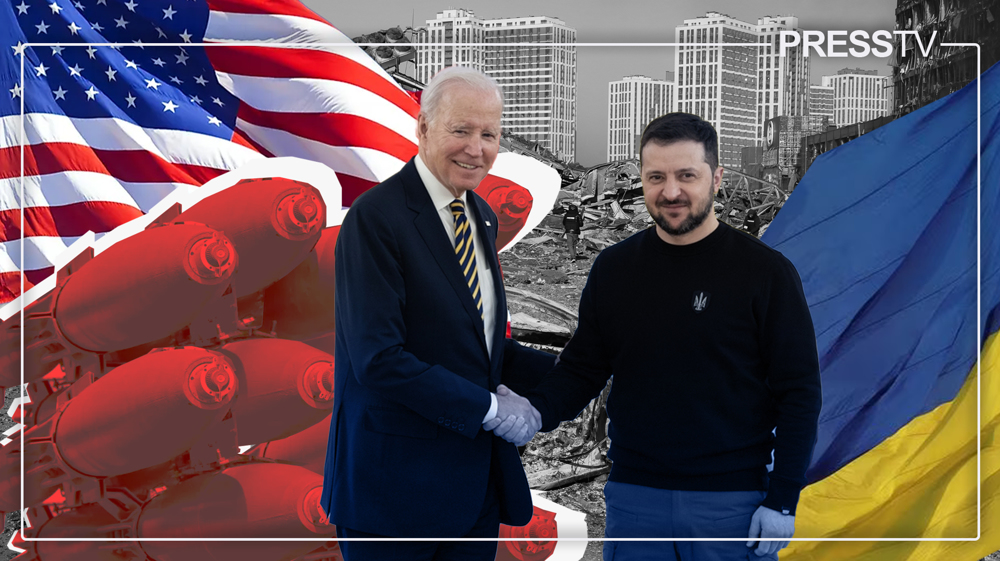






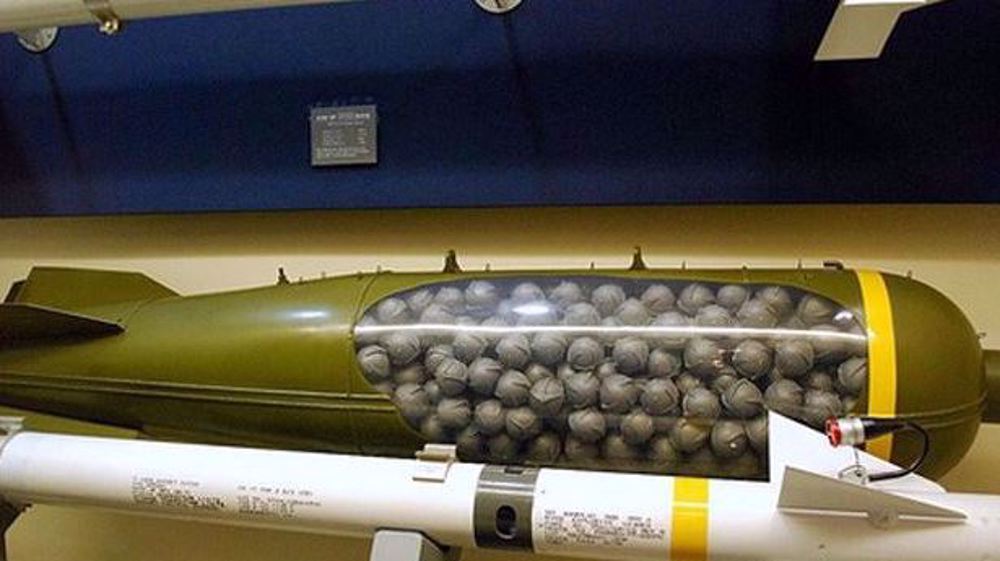
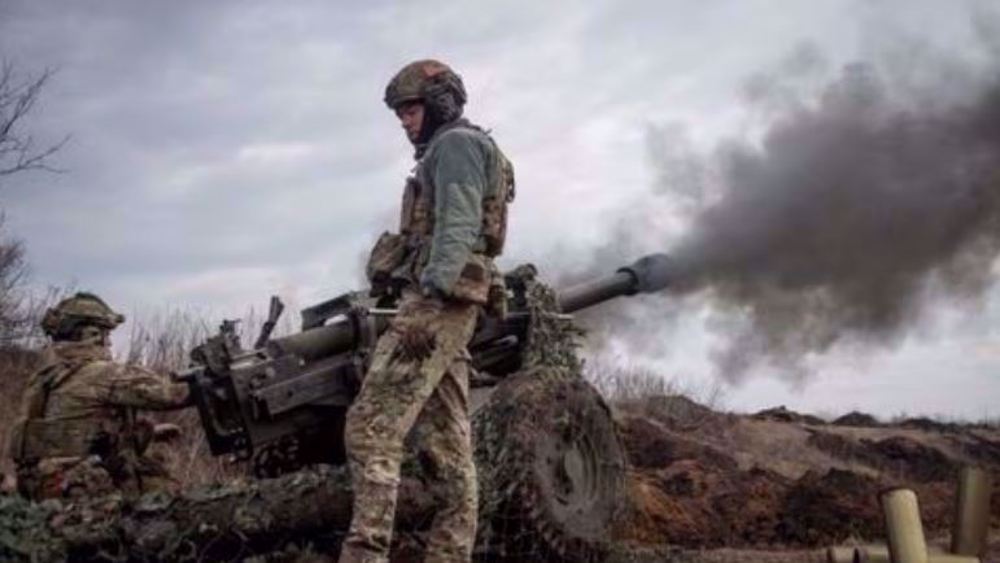
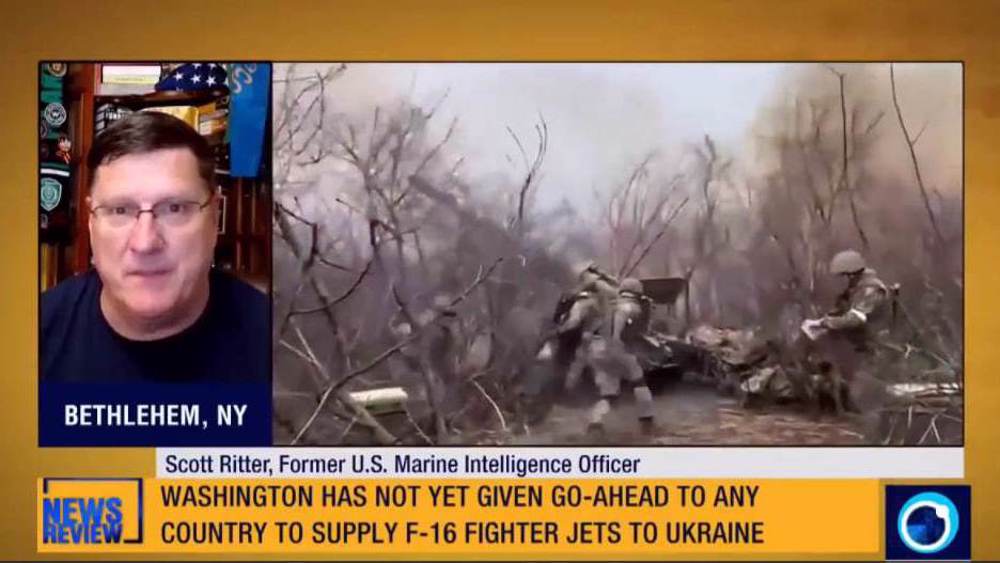
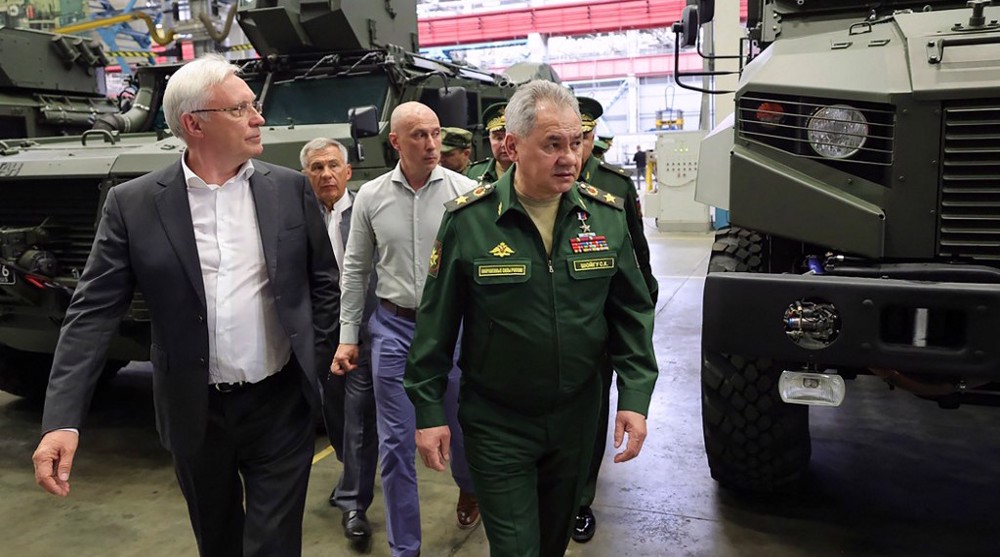
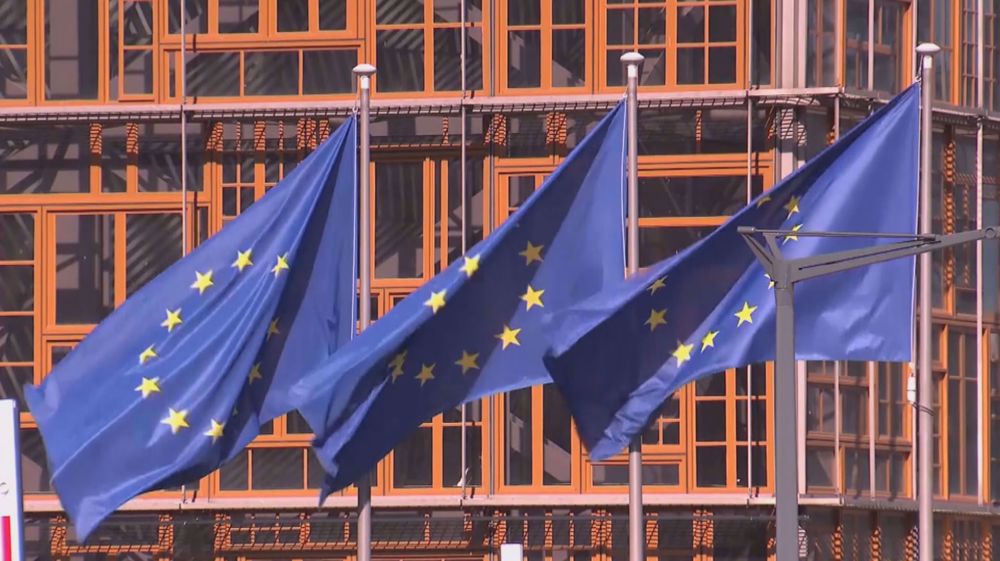

 This makes it easy to access the Press TV website
This makes it easy to access the Press TV website